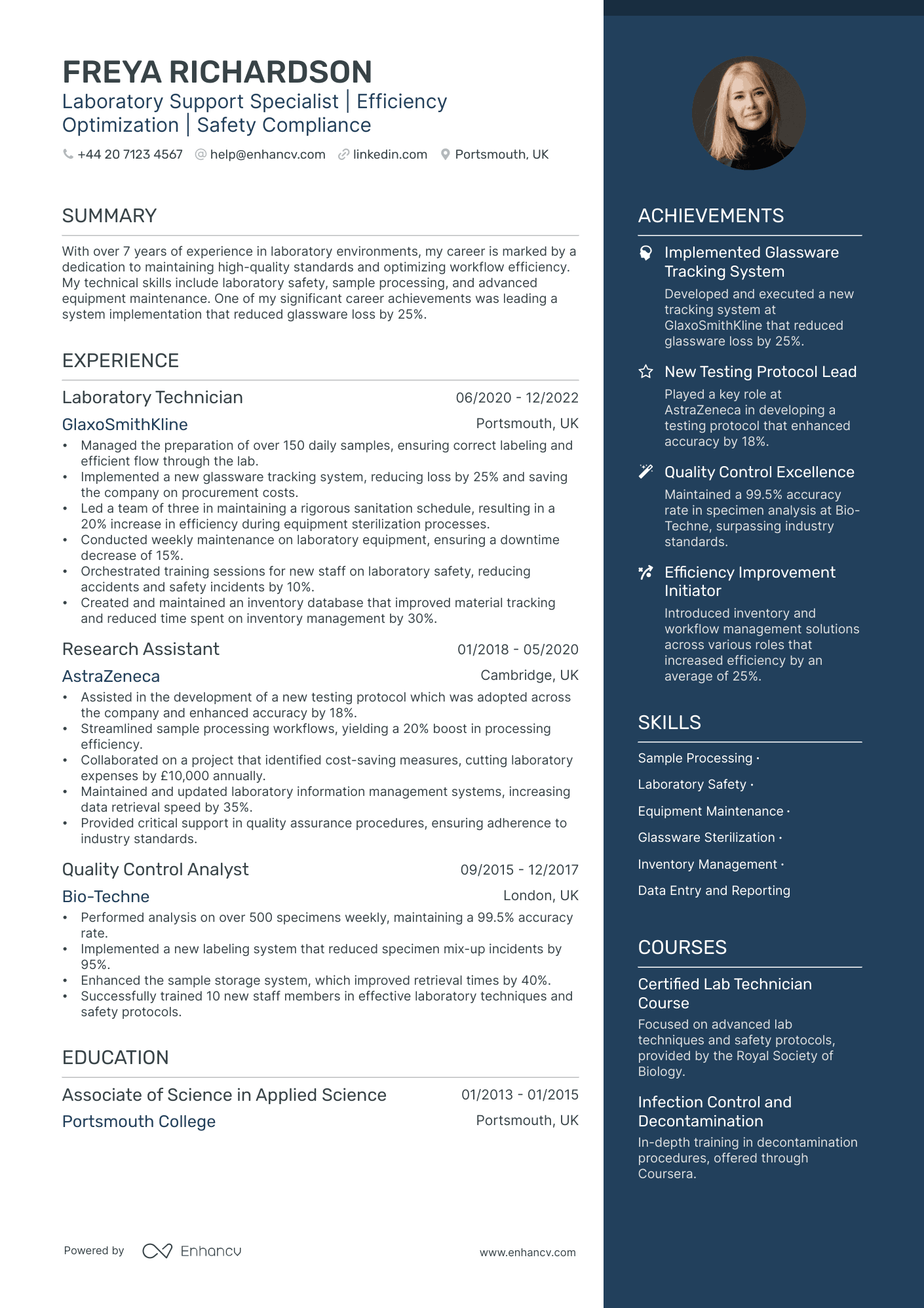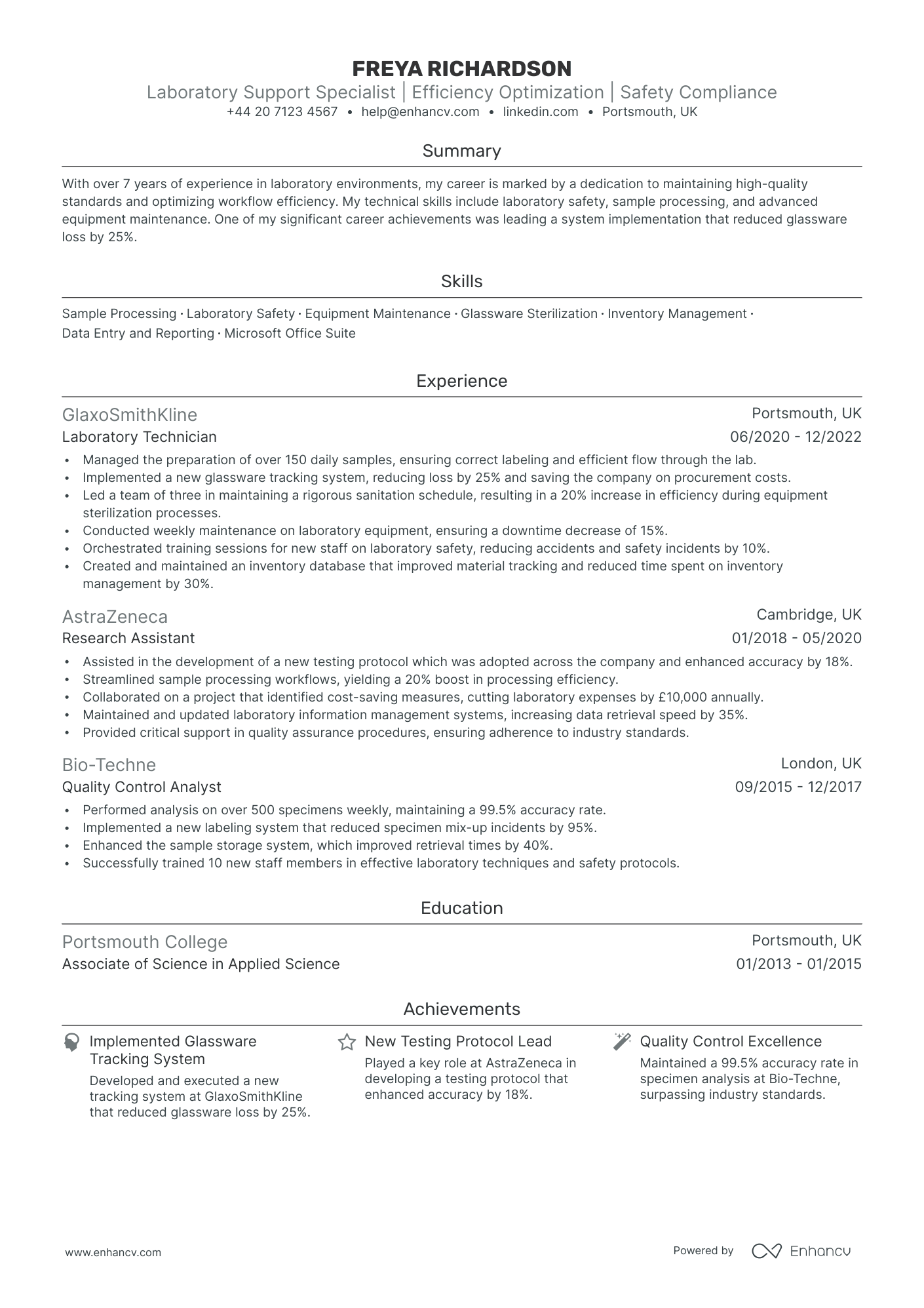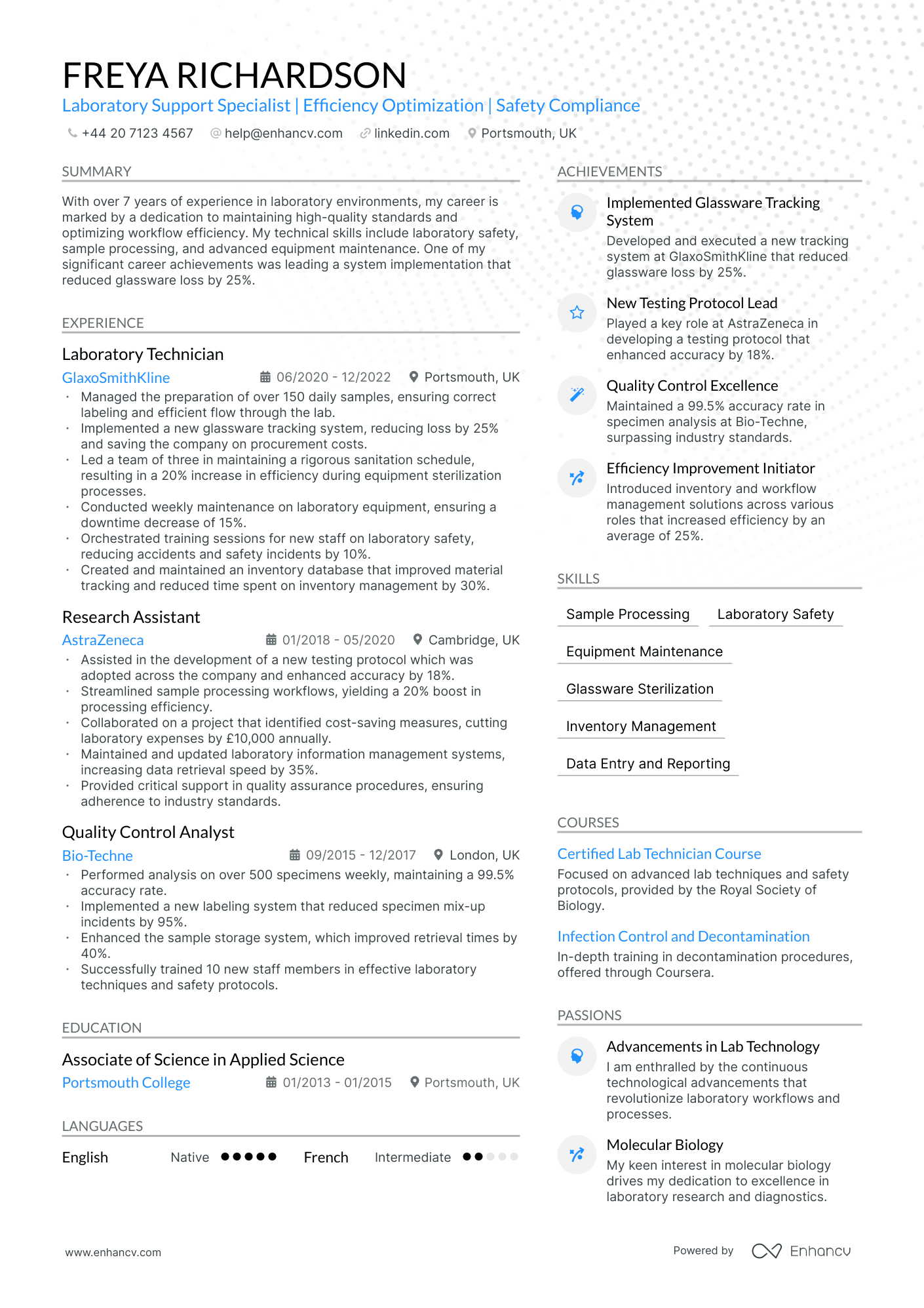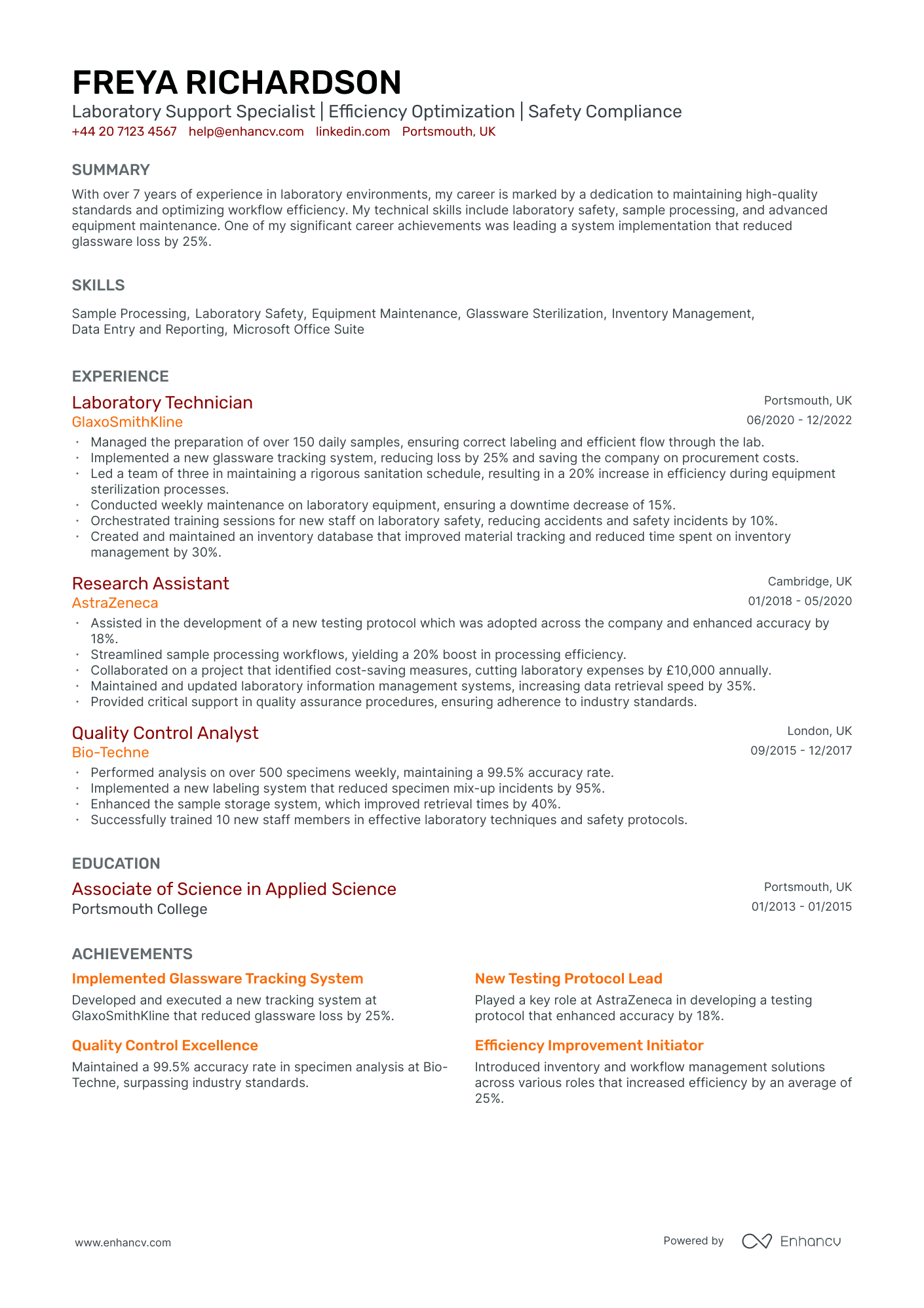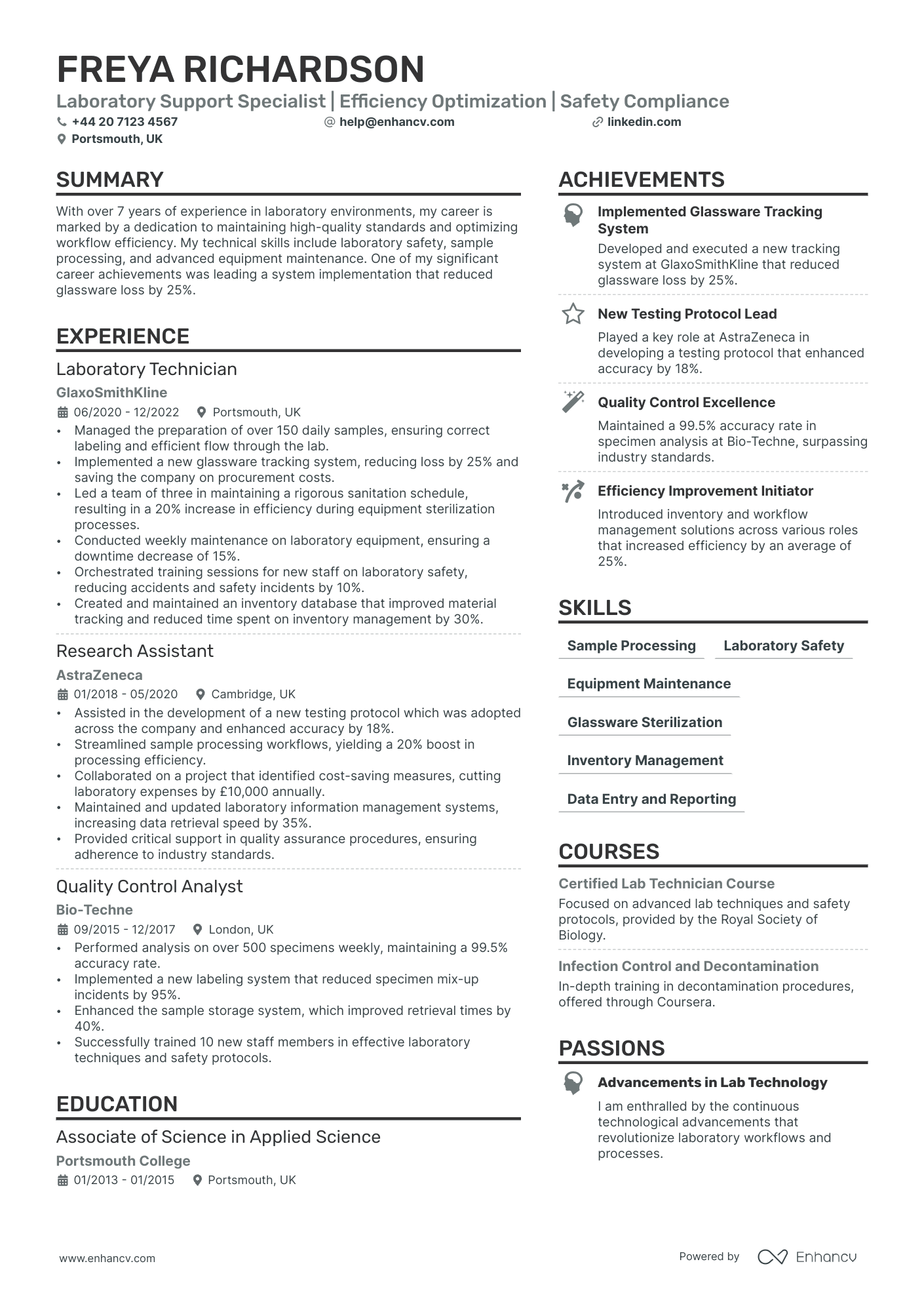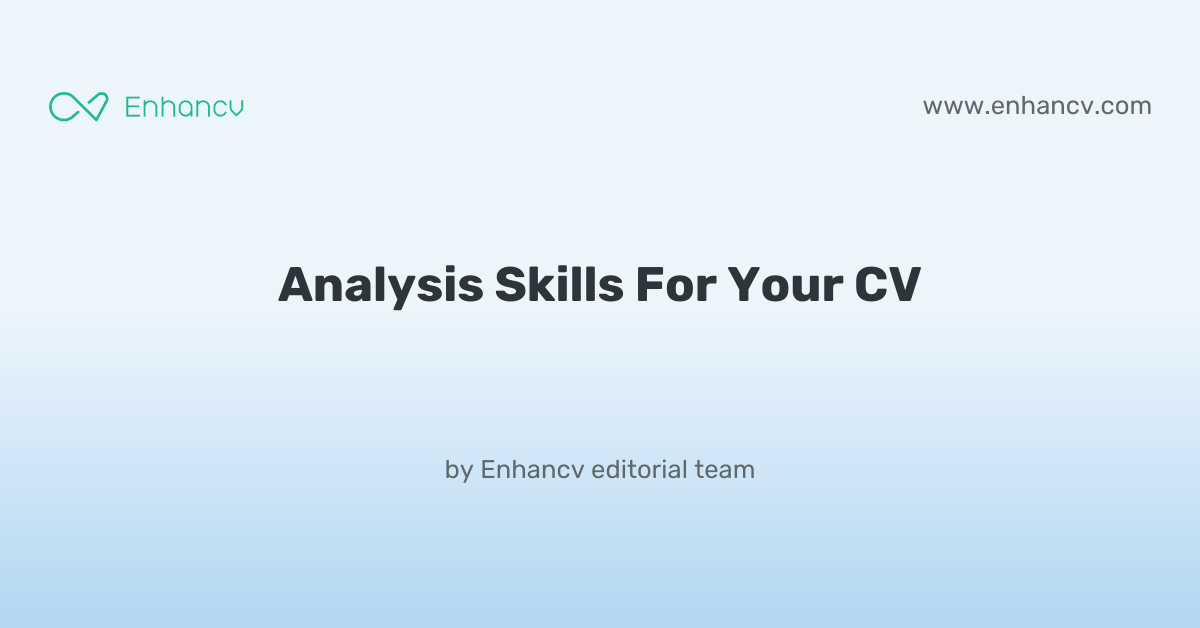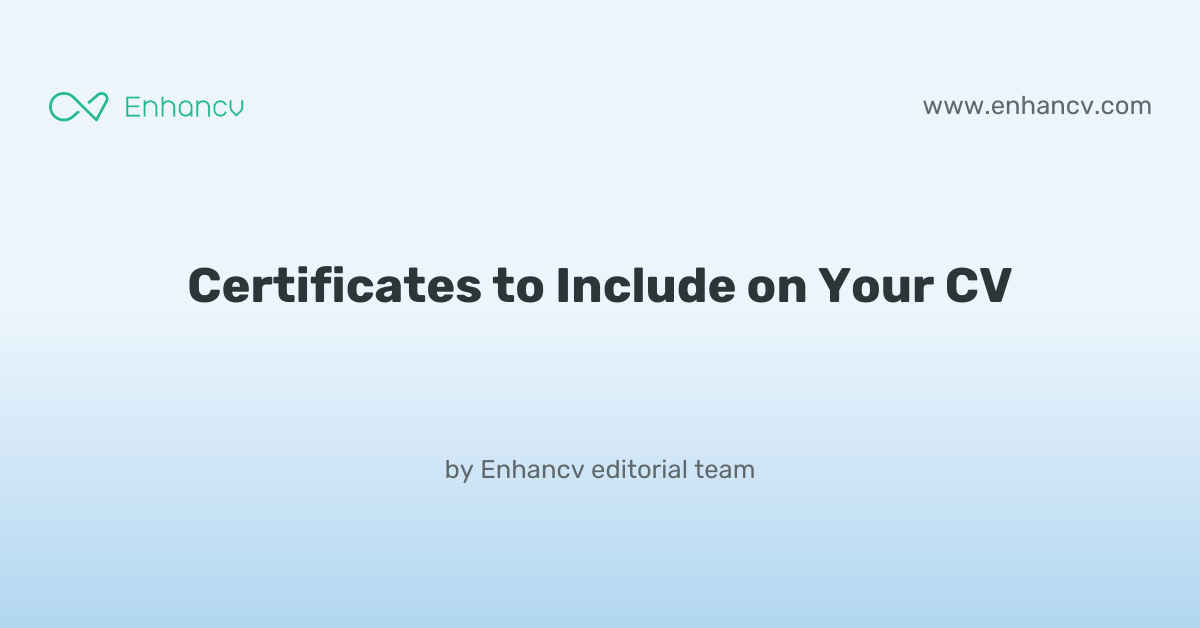Crafting a CV that strikes a balance between technical proficiency and the demonstration of practical lab experience is a common challenge you might encounter. Our guide offers targeted advice and examples on how to effectively showcase your skills and laboratory accomplishments, ensuring your CV stands out to potential employers.
- Design and format your professional lab assistant CV;
- Curate your key contact information, skills, and achievements throughout your CV sections;
- Ensure your profile stays competitive by studying other industry-leading lab assistant CVs;
- Create a great CV even if you happen to have less professional experience, or switching fields.
When writing your lab assistant CV, you may need plenty of insights from hiring managers. We have prepared industry-leading advice in the form of our relevant CV guides.
How to ensure your profile stands out with your lab assistant CV format
It's sort of a Catch 22. You want your lab assistant CV to stand out amongst a pile of candidate profiles, yet you don't want it to be too over the top that it's unreadable. Where is the perfect balance between your CV format simple, while using it to shift the focus to what matters most. That is - your expertise. When creating your lab assistant CV:- list your experience in the reverse chronological order - starting with your latest roles;
- include a header with your professional contact information and - optionally - your photograph;
- organise vital and relevant CV sections - e.g. your experience, skills, summary/ objective, education - closer to the top;
- use no more than two pages to illustrate your professional expertise;
- format your information using plenty of white space and standard (2.54 cm) margins, with colours to accent key information.
Once you've completed your information, export your lab assistant CV in PDF, as this format is more likely to stay intact when read by the Applicant Tracker System or the ATS. A few words of advice about the ATS - or the software used to assess your profile:
- Generic fonts, e.g. Arial and Times New Roman, are ATS-compliant, yet many candidates stick with these safe choices. Ensure your CV stands out by using a more modern, and simple, fonts like Lato, Exo 2, Volkhov;
- All serif and sans-serif fonts are ATS-friendly. Avoid the likes of fancy decorative or script typography, as this may render your information to be illegible;
- Both single- and double-column formatted CVs could be assessed by the ATS;
- Integrating simple infographics, icons, and charts across your CV won't hurt your chances during the ATS assessment.
PRO TIP
Use bold or italics sparingly to draw attention to key points, such as job titles, company names, or significant achievements. Overusing these formatting options can dilute their impact.
The top sections on a lab assistant CV
- Professional Summary highlights career objectives and expertise, giving a quick overview to the recruiter.
- Laboratory Skills details specific techniques and procedures the candidate is proficient in, which are vital for lab work.
- Educational Background showcases relevant qualifications and specialised training critical for lab tasks.
- Work Experience lists previous roles and responsibilities to demonstrate practical experience in a laboratory setting.
- Publications and Research illustrates contributions to the scientific community, reflecting the candidate's depth of knowledge.
What recruiters value on your CV:
- Highlight your practical laboratory experience, detailing specific techniques and equipment you're proficient with, as hands-on skills are paramount for a lab assistant.
- Emphasise your organisational abilities by mentioning any experience with lab inventory management, as keeping track of supplies is crucial in a lab setting.
- Include any relevant certifications or training, like aseptic technique or OSHA Hazardous Waste Operations, to demonstrate your commitment to safety and industry standards.
- Showcase your attention to detail by describing tasks or projects that required meticulous documentation, analysis, and reporting of experimental data.
- Mention your ability to work as part of a team by providing examples of collaborative projects or studies, as lab assistants often work with a group of researchers or technicians.
Recommended reads:
What information should you include in your lab assistant CV header?
The CV header is potentially the section that recruiters would refer to the most, as it should include your:
- Contact details - your professional (non-work) email address and phone number;
- Professional photograph - if you're applying hinting at the value you bring as a professional.
Many professionals often struggle with writing their lab assistant CV headline. That's why in the next section of this guide, we've curated examples of how you can optimise this space to pass any form of assessment.
Examples of good CV headlines for lab assistant:
- Laboratory Technician | BSc Biological Sciences | 5+ Years in Microbiology | ISO 17025 Proficiency
- Research Lab Assistant | Clinical Trial Support | 2 Years Experience | GCP Certified
- Chemical Lab Analyst | MSc Chemistry | Specialisation in Analytical Techniques | 8 Years Industrial Experience
- Medical Laboratory Assistant | Patient Sample Processing | 4 Years in Haematology | Phlebotomy Qualified
- Biotech Lab Technologist | Gene Editing Research | MPhil Genetics | 3 Years Postgraduate Laboratory Work
- Senior Lab Supervisor | Environmental Testing Expertise | 10+ Years Experience | Lab Management Certification
Choosing your opening statement: a lab assistant CV summary or objective
At the top one third of your CV, you have the chance to make a more personable impression on recruiters by selecting between:
- Summary - or those three to five sentences that you use to show your greatest achievements. Use the CV summary if you happen to have plenty of relevant experience and wish to highlight your greatest successes;
- Objective - provides you with up to five sentences to state your professional aims and mission in the company you're applying for
CV summaries for a lab assistant job:
- With over 5 years of experience as a lab technician, I have refined my analytical and technical skills, specialising in microbiological assays and high-throughput screening. My biggest career achievement includes implementing a quality control system that increased lab accuracy by 20%.
- Accomplished Chemical Engineer transitioning to a laboratory environment brings a solid foundation of analytical chemistry, combined with exceptional research and problem-solving abilities. Notable success includes the development of a novel catalyst that boosted production efficiency by 15%.
- Dynamic former Clinical Research Coordinator aiming to leverage 7 years of experience in patient-oriented research and data management into a detail-oriented lab assistant role. Expertise in biomedical sample processing and a proven track record in managing successful clinical trials.
- Enthusiastic graduate with a BSc in Biology, eager to apply my comprehensive understanding of molecular techniques and laboratory practices. Pursuing a lab assistant position to hone my ability in scientific inquiry and support groundbreaking research.
- Seeking an entry-level laboratory assistant opportunity, I am keen to utilise my recent MSc in Biochemistry to contribute to the advancement of scientific understanding. Although new to the field, my academic background and determination poise me to make meaningful contributions from the outset.
- Aspiring Laboratory Technician with no practical experience yet but comes with a strong foundation in biotechnology and a fervent interest in genetic engineering. Determined to apply academic learning to real-world laboratory scenarios and achieve proficiency in analytical techniques.
How to meet job requirements with your lab assistant CV experience
We've now reached the essence of your actual CV - your experience section. This is the space where you can list your career roles and on-the-job successes. Many candidates tend to underestimate just how much time and effort they should put into writing this CV section. Your experience shouldn't be a random list of your responsibilities, but instead:
- Match the job description with your skills, values, and accomplishments;
- Start each bullet with a strong action verb, followed up with one key skill and your outcome of applying this skill;
- Spotlight parts of your career history that are relevant to the job you're applying for.
Before we move on, make sure to check out some professional CV experience sections.
Best practices for your CV's work experience section
- Managed daily laboratory operations, ensuring all equipment was properly sterilised and maintained, thus keeping the lab in compliance with strict hygiene standards.
- Assisted in the preparation of experimental protocols, demonstrating meticulous attention to detail to support the reliability of research results.
- Performed complex laboratory tests in areas such as microbiology and biochemistry, showcasing proficiency in using various lab instruments and techniques.
- Recorded and analysed data with high accuracy, utilising spreadsheet and database software, which helped streamline the research process.
- Collaborated with senior researchers to troubleshoot experimental methods, contributing to the development of innovative solutions for procedural challenges.
- Supported the maintenance of a safe laboratory environment by conducting regular safety audits and promoting adherence to all Health and Safety Executive (HSE) regulations.
- Trained new laboratory personnel and students in laboratory protocols and equipment use, raising the overall efficiency and knowledge base of the lab team.
- Managed laboratory inventory and procurement processes, ensuring an uninterrupted supply of necessary reagents and materials for ongoing research projects.
- Liaised with interdisciplinary departments to coordinate research activities, showcasing strong communication and organisational skills essential for multi-departmental projects.
- Executed daily sample analysis using HPLC and mass spectrometry, improving sample throughput by 30%.
- Maintained the inventory of lab supplies, reducing waste by strategically ordering only necessary quantities based on forecasted lab usage.
- Collaborated on a cross-departmental project to develop a new assay protocol, which was adopted lab-wide and increased assay precision by 15%.
- Managed the maintenance and calibration of lab equipment, resulting in a 20% reduction in downtime due to equipment failure.
- Trained 5 new lab assistants in laboratory procedures, safety protocols, and data entry, ensuring high-quality standards were maintained.
- Spearheaded the implementation of a new digital labelling system which improved sample traceability and reduced mislabelling incidents by 40%.
- Developed and optimised protocols for protein extraction, contributing to a 25% increase in the efficiency of downstream processes.
- Authored and revised Standard Operating Procedures (SOPs) for the lab, enhancing compliance with industry regulations.
- Played a pivotal role in a research project that led to the publication of two peer-reviewed papers on novel drug delivery systems.
- Performed regular quality control tests on pharmaceutical products, ensuring 100% adherence to internal and regulatory quality standards.
- Mentored junior lab assistants, fostering a supportive and knowledgeable lab environment, and decreasing training time by 25%.
- Contributed to a departmental audit that led to the improvement of waste management protocols, reducing hazardous waste by 20%.
- Supervised a team of 3 lab technicians, ensuring consistent application of lab practices and a 5% improvement in team productivity.
- Led a project to optimise the automated liquid handling system, increasing sample throughput for enzyme-linked immunosorbent assays (ELISA) by 35%.
- Coordinated with the IT department to upgrade laboratory information management systems (LIMS), enhancing data integrity and accessibility.
- Facilitated the transition to a high-throughput sequencing platform, doubling the number of genome sequences processed per month.
- Acted as the primary contact for external collaborations, effectively communicating progress and milestones to stakeholders and partners.
- Regularly reviewed literature to stay abreast of technological advancements and integrated two new assay techniques into the lab's repertoire.
- Managed the specimen life cycle from collection to analysis for over 5000 samples annually, while maintaining 99% accuracy in labeling and processing.
- Implemented lean lab management techniques which streamlined workflows and decreased average sample processing time by 20%.
- Participated in a groundbreaking study on a new cancer treatment, contributing to data collection and analysis used in pivotal clinical trials.
- Outlined and implemented a new reagent preparation process, saving the lab approximately £5,000 per annum in material costs.
- Credited with reducing cross-contamination rates by diligently following and enhancing sterilisation protocols.
- Designed a custom database for sample tracking which improved the efficiency of retrieving historical data by 30%.
Writing your CV without professional experience for your first job or when switching industries
There comes a day, when applying for a job, you happen to have no relevant experience, whatsoever. Yet, you're keen on putting your name in the hat. What should you do? Candidates who part-time experience , internships, and volunteer work.
Recommended reads:
PRO TIP
Describe how each job helped you grow or learn something new, showing a continuous development path in your career.
Mix and match hard and soft skills across your lab assistant CV
Your skill set play an equally valid role as your experience to your application. That is because recruiters are looking for both:
- hard skills or your aptitude in applying particular technologies
- soft skills or your ability to work in a team using your personal skills, e.g. leadership, time management, etc.
Are you wondering how you should include both hard and soft skills across your lab assistant CV? Use the:
- skills section to list between ten and twelve technologies that are part of the job requirement (and that you're capable to use);
- strengths and achievements section to detail how you've used particular hard and soft skills that led to great results for you at work;
- summary or objective to spotlight up to three skills that are crucial for the role and how they've helped you optimise your work processes.
One final note - when writing about the skills you have, make sure to match them exactly as they are written in the job ad. Take this precautionary measure to ensure your CV passes the Applicant Tracker System (ATS) assessment.
Top skills for your lab assistant CV:
Laboratory Safety
Sample Preparation
Data Entry
Equipment Calibration
Specimen Handling
Chemical Storage
Quality Control Procedures
Microscopy
Laboratory Record-Keeping
Laboratory Techniques
Attention to Detail
Time Management
Communication
Problem Solving
Teamwork
Adaptability
Organisation
Critical Thinking
Initiative
Patience
PRO TIP
If you have received professional endorsements or recommendations for certain skills, especially on platforms like LinkedIn, mention these to add credibility.
Your university degree and certificates: an integral part of your lab assistant CV
Let's take you back to your uni days and decide what information will be relevant for your lab assistant CV. Once more, when discussing your higher education, select only information that is pertinent to the job (e.g. degrees and projects in the same industry, etc.). Ultimately, you should:
- List only your higher education degrees, alongside start and graduation dates, and the university name;
- Include that you obtained a first degree for diplomas that are relevant to the role, and you believe will impress recruiters;
- Showcase relevant coursework, projects, or publications, if you happen to have less experience or will need to fill in gaps in your professional history.
PRO TIP
Use mini case studies or success stories in your CV to demonstrate how your skills have positively impacted previous roles or projects.
Recommended reads:
Key takeaways
Impressing recruiters with your experience, skill set, and values starts with your professional lab assistant CV. Write concisely and always aim to answer job requirements with what you've achieved; furthermore:
- Select a simple design that complements your experience and ensures your profile is presentable;
- Include an opening statement that either spotlights your key achievements (summary) or showcases your career ambitions (objective);
- Curate your experience bullets, so that each one commences with a strong, action verb and is followed up by your skill and accomplishment;
- List your hard and soft skills all across different sections of your CV to ensure your application meets the requirements;
- Dedicate space to your relevant higher education diplomas and your certificates to show recruiters you have the necessary industry background.
